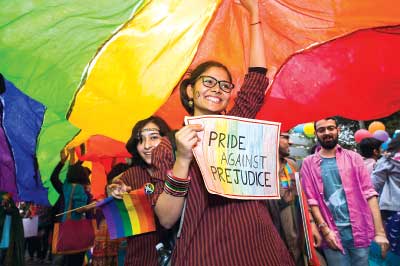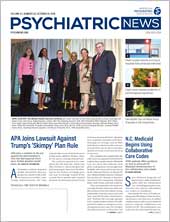Ending more than 150 years of oppression, the Supreme Court of India last month resoundingly struck down a law criminalizing gay sex, giving rise to a culture shift now under way in the world’s second most populous country and giving hope that other human rights such as gay marriage and same-sex adoption will follow.
The long-held belief in the psychiatric community that homosexuality is a normal variation of human sexuality was cited by the justices as influencing their unanimous ruling. They also cited individual autonomy, equality for all without discrimination, and recognition of identity and privacy as overarching ideals underpinning their decision.
“What nature gives is natural,” the justices wrote. “History owes an apology … for the delay in providing redressal for the ignominy and ostracism that [homosexuals] have suffered through the centuries,” Justice Indu Malhorta wrote in a separate concurring judgment.
The ruling will likely influence many of the 70 countries and territories worldwide that continue to criminalize same-sex relationships; eight of them still impose the death penalty for violations.
“The decision not only affects the people of India, but it also will have an influence on many non-Western countries that still have laws criminalizing homosexuality,” said Jack Drescher, M.D., a clinical professor of psychiatry at Columbia University and a member of the World Health Organization’s Working Group on the Classification of Sexual Disorders and Sexual Health. “I think it will have an impact on countries that see acceptance of homosexuality as a primarily Western idea. This is a game changer.”
The ruling “is a huge step forward in removing discrimination against homosexually oriented persons,” said Ajit V. Bhide, M.D., president of the Indian Psychiatric Society (IPS). “It allows them freedom from stigma that is long overdue, but there is indeed a large conservative section in Indian society who will take a long time to come to grips with the altered legal status.”
Om Prakesh Singh, M.D., a professor of psychiatry at West Bengal Medical Education Service and editor of the IPS’s Indian Journal of Psychiatry, agreed. “Because India is a developing country with a traditional outlook—and deep cultural and educational ties to similar countries—this acceptance of homosexuality will influence their thinking,” Singh said.
India’s law, known as Section 377, was introduced in the 1860s by British colonists. It made it a crime to voluntarily have “carnal intercourse against the order of nature” and carried a punishment up to life in prison. Although seldom enforced by the country’s criminal justice system, the law created a climate allowing beatings, blackmail, and other exploitation of gays, who suffered in silence for fear that reporting any crimes would result in their own criminal prosecution—or worse—by law enforcement.
A Delhi High Court briefly invalidated Section 377 in 2009, but the anti-sodomy law was restored four years later after a two-judge Supreme Court panel reinstated it. It ruled at the time that India’s homosexuals were a “miniscule fraction of the country’s population”—too small to warrant protection.
“I welcome this first step toward humanity and reform in criminal laws in India,” said Dilipkumar Patel, M.D., president of the Indo-American Psychiatric Association and an adjunct assistant clinical professor of psychiatry at Morehouse School of Medicine. “Though the law has decriminalized the sexual act, acceptance of gay or lesbians has a long way to go in Indian society in general. India needs to fully embrace the evolving standards of global society—and the rights of everyone regardless of their sexual identity or gender identity.”
An IPS task force to legalize homosexuality held conferences in cities across India, bringing together psychiatrists and members of the community to create awareness and better understanding of the plight of the LGBT community. “The public stance of the IPS has without a doubt helped shape the new, healthy outlook that the Supreme Court has validated,” Bhide said.
There is much reason now for hope: with the Supreme Court ruling, the IPS policy statement, and the surrounding publicity has come greater acceptance of the LGBTQ community, said Singh. “Many articles are being published by business professionals and others who openly declare their homosexuality. It has increased acceptance,” he said. “Parents are also realizing the biological nature of homosexuality and are more supportive.”
“The fight has not been easy,” Bhide said, summing up years of activism by Indian psychiatrists and others. But he is quick to credit another group as well. “The perseverance of the LGBT community leaders of course needs the greatest applause.” ■
India’s Supreme Court decision can be accessed
here.

